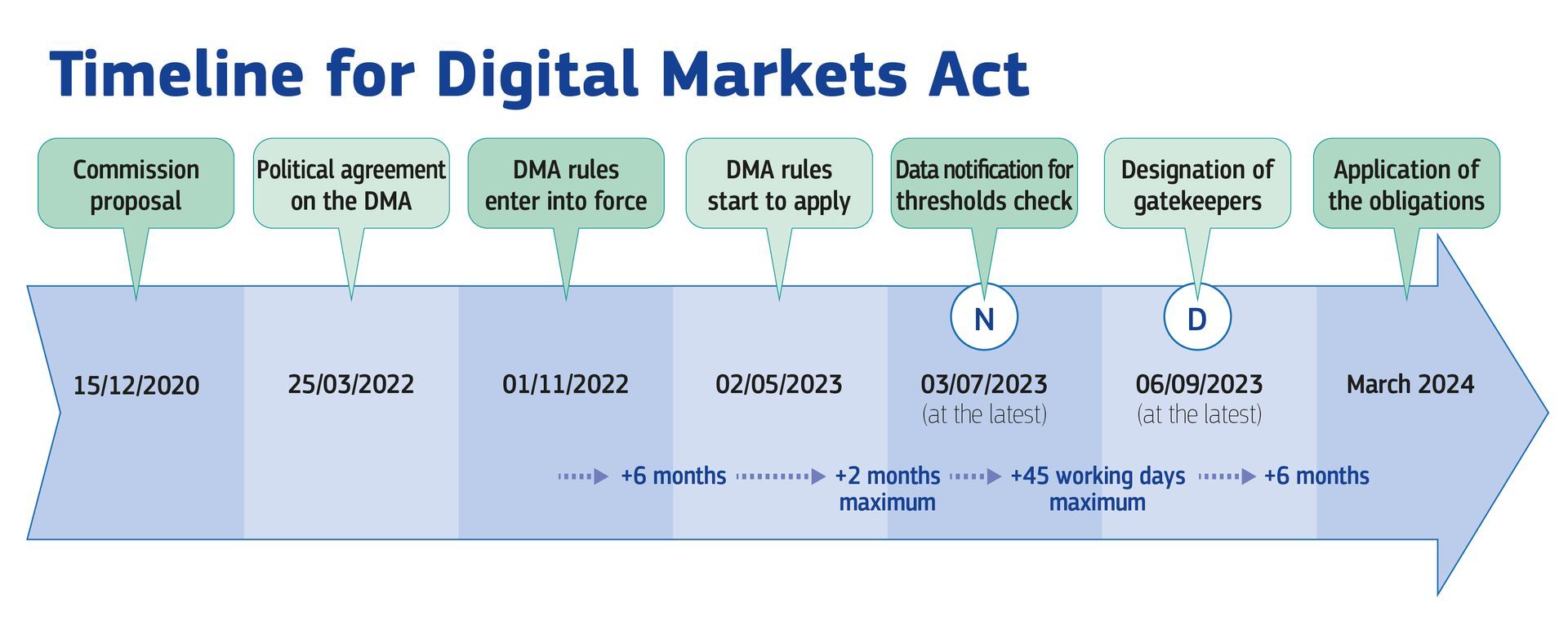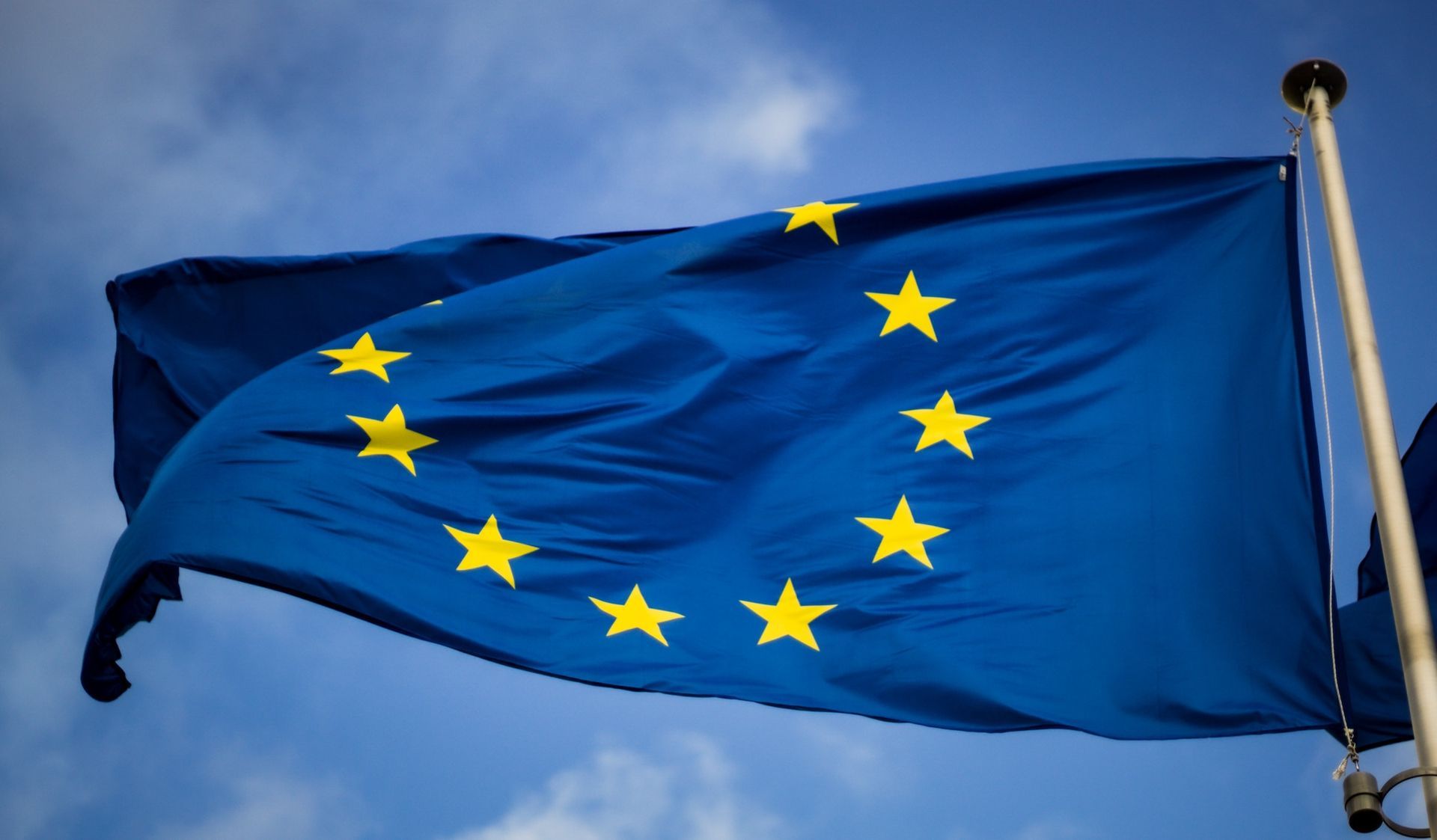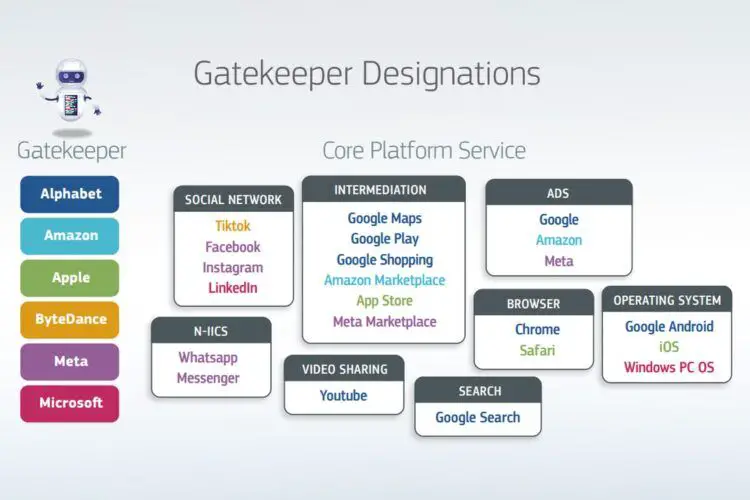The European Commission has unveiled a definitive list of services provided by major tech companies, designating them as “gatekeepers” under the new Digital Markets Act (DMA). This move aims to regulate the market dominance of prominent tech players, fostering fair competition and curbing anti-competitive practices.
Notable names on the list include Alphabet, Amazon, Apple, Meta, and Microsoft, alongside China’s ByteDance. These companies, along with their core platform services, are obligated to comply with DMA requirements by March 2024.

Key provisions of the Digital Markets Act
The Digital Markets Act (DMA) introduces a comprehensive set of regulations aimed at reshaping the landscape of major tech companies’ operations within the European Union. At its core, the DMA seeks to curb the monopolistic tendencies of industry giants, fostering a more open, competitive, and user-centric digital environment.
Key provisions within this legislative framework address critical aspects of the tech industry, ranging from messaging app interoperability to ensuring fairness in advertising services. These measures are designed not only to level the playing field but also to prioritize user choice, transparency, and innovation. Here are the key targets of the new act:
- Empowering consumer choice
- The DMA places a strong emphasis on empowering consumers by ensuring they have a say in their digital experiences. By requiring companies to offer alternatives and interoperability, users will have the freedom to choose services and applications that best suit their preferences and needs. This shift towards user-centricity marks a significant departure from past practices, aiming to foster a more dynamic and competitive digital ecosystem where innovation and consumer choice flourish.
- Interoperability for messaging apps
- Major messaging applications, such as WhatsApp and Messenger, will be required to ensure interoperability with competitors, promoting user choice and flexibility.
- Open ecosystems for operating systems
- Operating systems like Android, iOS, and Windows must facilitate third-party app stores and allow developers to offer alternative in-app payment options, reducing ecosystem lock-in.
- Choice in search engines
- Google Search and potentially Bing, will be mandated to offer users a selection of alternative search engines, enhancing user agency and diversity in search experiences.
- Fair play in advertising services
- Companies like Google, Amazon, and Meta will need to adhere to guidelines preventing self-preferencing of their products and services compared to others on their platforms.
- Transparency in web browsers
- Web browsers like Chrome and Safari will need to allow users to uninstall pre-installed apps and modify system defaults, ensuring greater transparency and user control.

Gatekeeper determination
The DMA employs specific criteria to identify companies and services as gatekeepers, including an annual turnover exceeding €7.5 billion and a market cap surpassing €75 billion, as well as services with over 45 million monthly active users in the EU.
Industry responses
While some companies are reviewing their designations and evaluating implications, others have raised concerns regarding privacy and security impacts. Apple emphasized its commitment to mitigating any adverse effects on its services. Meta is in the process of evaluating the Commission’s decision, and Microsoft has accepted its designation while welcoming further investigations.
ByteDance, the company behind TikTok, expressed strong disagreement with its gatekeeper status, emphasizing its role in bringing choice to a predominantly controlled space. They are evaluating potential next steps in response to this decision.
Enforcement and penalties
Failure to comply with DMA rules may result in fines of up to 10 percent of a company’s worldwide turnover, and up to 20 percent for repeat offenders. Additionally, the Commission holds the authority to impose structural remedies, potentially requiring a gatekeeper to divest a portion of its business.

The unveiling of the definitive list of gatekeepers and core platform services is a significant stride in implementing the DMA. However, legal challenges are anticipated, mirroring previous disputes over tech regulations. As these measures take effect, the tech landscape in Europe is poised for transformation, aiming for a more competitive and diverse digital market.
Featured image credit: European Comission





